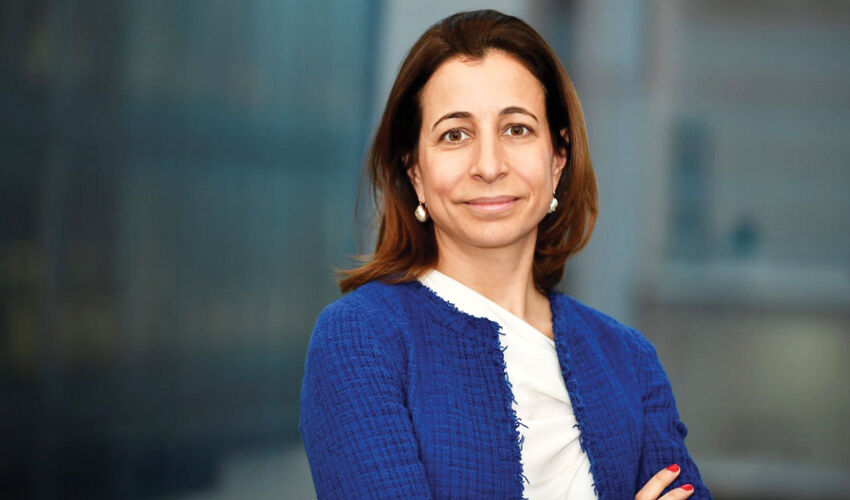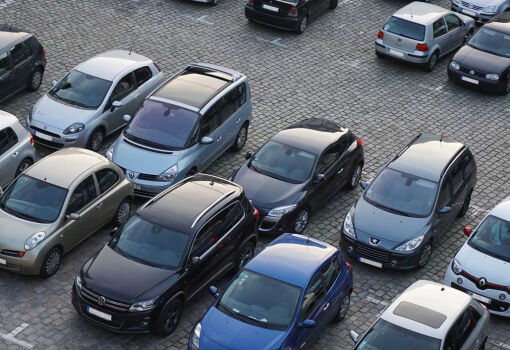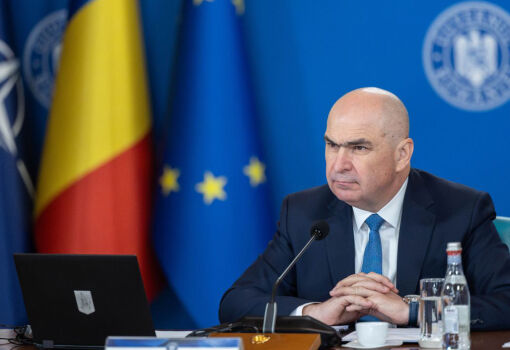
Ines Rocha
– Mrs. Rocha, please tell us what are the main objectives of your visit to Moldova on October 30-31? Could you share the details of the meetings held and the results or agreements reached?
– I am very happy to be in Chisinau. I came to participate in the high-level dialogue seminar “Finance and economic growth: lessons for Moldova’s European path”, organized by the National Bank of Moldova. I gave a presentation at this conference on financial markets and the process of accession to the European Union.
The conference was extremely interesting. I had the opportunity to meet many representatives of the Moldovan private sector. We discussed a wide range of issues. These included Moldova’s progress in the EU integration process, financial sector reforms and the prospects for your country’s financial market.
We also focused on how to increase access to finance for SMEs and start-ups.
The Republic of Moldova has just emerged from parliamentary elections in which the majority of citizens clearly chose the path of integration into the European Union, so the conference naturally focused on the reforms needed to advance along this path.
One such reform is the country’s accession to the SEPA (Single Euro Payments Area) payment system. This step, which Moldova has already successfully implemented, will significantly facilitate settlements with the EU, increase trade and support Moldovan exporters.
– Since October 31, Moldova has a new government headed by Prime Minister Alexandru Munteanu. It has pledged to work closely with international financial institutions to promote reforms and attract investment. What message did IFC convey to the new Moldovan government during your visit?
– The main message we conveyed to the Moldovan authorities is the following: Moldova has faced many challenges in recent years, especially with Russia’s invasion of neighboring Ukraine. Nevertheless, we believe that the country is now on the threshold of growth – provided that the reform course continues.
With a new government and a clear path towards EU integration, this is a very opportune moment to build on the successes achieved and turn challenges into opportunities for growth.
The path of EU integration offers many prospects. The EU’s support of 1.9 billion euros will help speed up reforms, strengthen institutions and prepare the Moldovan economy for accession. It should be noted that despite the numerous crises Moldova has gone through, the business environment continues to improve – and this is a very positive signal for local and foreign investors.
– In which sectors do you see the greatest opportunities for Moldova’s economic growth in the coming years?
– There are many opportunities, but the key ones for Moldova are agriculture and energy. These are the sectors that will strengthen the country’s infrastructure and, in turn, attract more investment from the private sector.
Moldova has already made notable progress in expanding the use of renewable energy.
The World Bank Group, through the International Bank for Reconstruction and Development (IBRD), is supporting Moldova in this area. The results are already visible – last summer on some days the share of renewable energy reached impressive levels.
This clearly shows that further investment in renewable energy, especially by the private sector, can be transformational for Moldova’s economy and sustainable development.
– In what other areas is IFC providing development support to Moldova?
– IFC is working closely with the National Bank of Moldova to develop a sustainable financing framework and align it with the EU accession process.
We also support efforts to strengthen the food safety system, recognizing the key importance of agriculture to the national economy.
In addition, we have provided investment and advisory support to a large agribusiness company and local financial institutions to expand lending to small and medium-sized enterprises, as access to finance remains a critical driver of private sector growth.
Our advisory cooperation with banks also covers areas such as open banking, digital services and climate-resilient agriculture finance – all of which are integral elements of a modern, sustainable financial system.
– In 2023, IFC’s cooperation in the financial sector was only with maib, Moldova’s largest bank. Has this engagement expanded since then, and how would you characterize IFC’s current level of engagement in Moldova’s banking sector?
– Yes, IFC’s engagement with the Moldovan financial sector has increased. For example, we are advising banks on developing innovative digital services and creating financial products for farmers that reduce risk and increase productivity and sustainability.
We have also provided credit lines to banks to finance small businesses, including women’s entrepreneurship.
In addition, we support trade finance programs through partner banks.
– What is the total volume of IFC’s investments in Moldova to date, and what share do they occupy in the corporation’s regional portfolio? How realistic is it to increase IFC’s annual investments in Moldova by 20-30% by 2030?
– We are very ambitious about cooperation with Moldova.
I am pleased to note that 2025 was a record year for IFC investments in your country. In 2024, our commitments to Moldova amounted to about $48 million, and in 2025 we have already financed $30 million with $295 million in private investment. These figures demonstrate our confidence in Moldova’s potential and our commitment to further increase our cooperation in the coming years.
– Could you tell us more about the terms on which IFC is currently providing financing to projects in Moldova – interest rates, loan terms, other key parameters? How do these conditions compare with other countries in the region?
– IFC works on commercial terms, because our goal is not to push out private investors, but on the contrary, to encourage their participation. Therefore, I cannot disclose the exact financial parameters of our agreements, as these are private transactions with clients.
Nevertheless, I would like to emphasize that IFC will continue to support Moldova in three priority areas: energy, agriculture and access to finance.
I would also note that the World Bank Group’s broader program in Moldova emphasizes job creation. Moldova has shown exceptional resilience, hosting one of the world’s highest per capita refugee shares since Russia invaded Ukraine in February 2022. Our work in the country is closely linked to supporting employment.
– In your opinion, what steps can Moldova take to become more attractive to investors, including the IFC?
– To become more attractive for investment, Moldova needs to unlock the growth potential of the private sector. This can be done by addressing key challenges in the business environment, access to finance, basic infrastructure, and human capital and skills development.
As already noted, the business environment has improved significantly in recent years, especially in areas such as company registration, reforms to permit procedures, inspections, and administrative simplification.
Nevertheless, there is a need to move forward. Digitalization of public services will increase their accessibility and reduce the administrative burden.
Modernization of ports, airports, roads and logistics systems will improve trade flows, attract foreign investment and integrate Moldova more deeply into European supply chains.
– What message would you give to Moldova’s private sector representatives for the coming years?
– Moldova has significant potential for private sector-led growth. Attracting more private investment is critical to creating jobs, increasing the efficiency of resource allocation, enhancing competition and increasing productivity.
IFC stands ready to continue to support Moldova’s path to a more sustainable economy. We are committed to supporting business development in key areas such as energy, agriculture and access to finance, as well as in other priority areas.
– Thank you for the interview!

